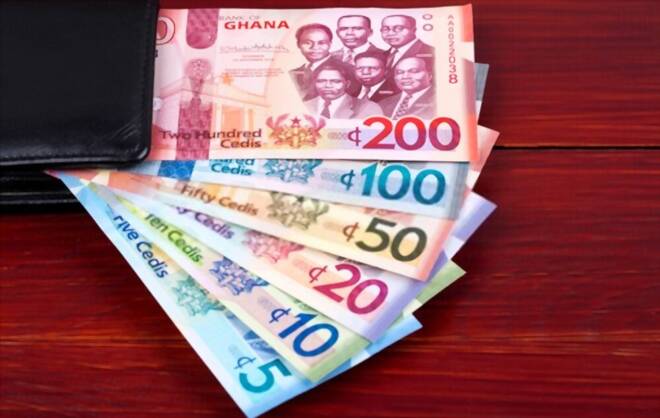Advertisement
Advertisement
Ghana Deploys Hardware Wallets for CBDC – ‘eCedi’
Updated: Mar 17, 2022, 10:49 GMT+00:00
Bank of Ghana said that the proposed use of its CBDC – eCedi – should be as intuitive as possible and improve financial inclusion.
Key Insights:
- Ghana’s central bank is deploying hardware wallets and other devices for CBDC.
- Notably, around 43% of Ghana’s population does not have access to a bank account.
- The bank is looking to improve financial inclusion with the use of eCedi.
Bank of Ghana (BoG) has proposed using hardware wallets for its central bank digital currency (CBDC) dubbed ‘eCedi.’
The bank intends to make eCedi available for those who do not have a bank account or even internet access.
eCedi Arriving Soon
In a design paper released on Tuesday, Africa’s largest gold producer said that the digital currency should “compliment” mobile money. According to the central bank, eCedi needs to be as intuitive as possible and seeks to improve financial inclusion.
“eCedi usage has to be as easy and intuitive as possible. Consumers should be able to make a payment in the minimum number of steps, with a minimum required level of technical literacy.”
The release noted that the BoG had designed two types of wallets for its CBDC. Hosted wallets managed by financial institutions will require access to the internet.
While hardware wallets “are secure portable storage devices” for individuals.
According to World Bank data, these hardware wallets work in offline mode, given only 53% of Ghana’s individuals were internet users as of 2019. In January 2021, only 15.7 million individuals had access to the internet from Ghana’s total population of 31.40 million. Around 43% of Ghanaians do not hold a bank account.
Additionally, the banking regulator said that eCedi transactions would be free of additional costs, unlike mobile-money transfers that come with a transactional fee.
Offline eCedi was first introduced in October 2021 through smart cards – physical cards embedded with a chip, similar to debit/credit cards.
Kwame Oppong, head of fintech and innovation at the BoG, emphasized that the offline functionality will enable Ghanaians, who lack reliable access to electricity and internet connectivity, to embrace the country’s CBDC.
BoG also partnered with German financial firm Giesecke+Devrient to pilot a retail CBDC in the country.
Africa’s Fast-Paced CBDC Approach
Ghana has positioned itself at the forefront of exploring and adopting a CBDC, cryptocurrencies such as BTC, and other digital assets in the West African region.
It quickly follows south-central African nation Zambia in looking into the merits of a CBDC to promote financial inclusion. Zambia said that it is close to finishing research and implementing a CBDC by the end of the fourth quarter.
Nkatya Kabwe, Assistant Director at the Bank of Zambia, told Bloomberg in February,
“The research results will form part of the input in the policy considerations on whether to introduce a central bank digital currency in Zambia”
Besides, eNaira marks the first African CBDC in circulation, issued back on October 25, 2021, regulated by the Central Bank of Nigeria. Digital currency serves as both a medium of exchange and a store of value.
It offers better payment prospects in retail transactions when compared to cash.
About the Author
Sujha Sundararajanauthor
Sujha Sundararajan is a writer-journalist with 7+ years of experience in Blockchain, Cryptocurrency and in general, FinTech news reporting. Her articles have featured in multiple journals such as CoinDesk, Protos, Bitcoin Magazine, CCN, Asia Blockchain Review, BeInCrypto and EconoTimes to name a few. She holds a Master’s in Journalism from the Indian Institute of Journalism and New Media and is also an accomplished Indian classical singer.
Advertisement
